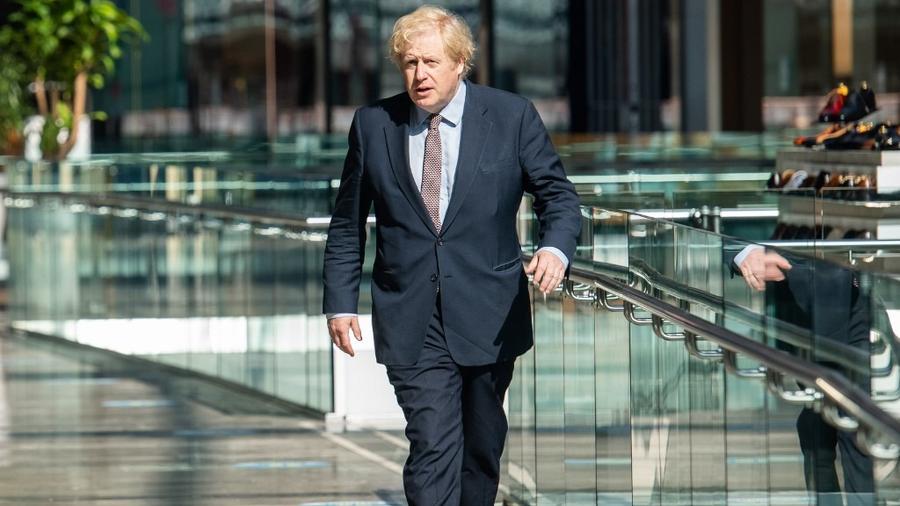 Britain's Prime Minister Boris Johnson visits Westfield shopping centre in east London on June 14, 2020. (PHOTO / AFP)
Britain's Prime Minister Boris Johnson visits Westfield shopping centre in east London on June 14, 2020. (PHOTO / AFP)
Boris Johnson faces a rebellion from members of his own Conservative Party seeking to amend government legislation and give Parliament a veto on new trade deals.
At least 11 Tories have put their name to an amendment to the Trade Bill to give the House of Commons and House of Lords each a say over whether to approve any new accord struck with another country
At least 11 Tories have put their name to an amendment to the Trade Bill to give the House of Commons and House of Lords each a say over whether to approve any new accord struck with another country. The legislation will be debated in the House of Commons on Monday.
After leaving the European Union at the end of this year, Britain will have to renegotiate many of the trade deals it enjoyed through its membership of the bloc.
ALSO READ: Spokesman: Britain will be constructive with EU in Brexit talks
For Brexiters, the freedom to pursue more favorable agreements is one of the big dividends of leaving the EU -- but such negotiations can be controversial at home: the US, for example, is pressing the UK to allow products such as chlorine-washed chicken.
Jonathan Djanogly, the Conservative MP spearheading the amendment, suggested the government’s reluctance to give lawmakers a say over future trade deals is at odds with the Leave campaign’s promise in the referendum to “take back control.”
“I am frankly surprised at the government’s approach here,” Djanogly said in a telephone interview on Monday, “We have significantly reduced the scrutiny of treaties in this country.”
ALSO READ: UK mulls cutting tariffs on US agricultural imports
US, Japan and EU legislators have the right to approve new trade agreements- my Trade Bill amendment suggests that UK legislators should have the same right.
If passed, the amendment would require ministers to consult with the devolved administrations in Scotland, Wales and Northern Ireland before starting talks with another country.
Members of the Labour Party, the Liberal Democrats, the Scottish National Party, Greens, Plaid Cymru, and the Social Democratic and Labour Party have also put their names to the amendment.
To be sure, the rebels don’t stand a chance of defeating the government unless the amendment is backed by more Conservatives if and when it comes to a vote. Johnson still has a majority of 78.
READ MORE: UK plans to start virtual trade talks with Japan shortly
Djanogly talked down the chances of his amendment passing, but said the debate in the Commons would encourage the House of Lords, the upper chamber, to pursue the issue.
“In this parliament, for a backbench MP to say you’ve got a chance of defeating a majority is unrealistic,” he said. “The important thing is to send a clear message to ministers, who obviously have to take this through the House of Lords, which is generally interested in constitutional issues and scrutiny of legislation.”


